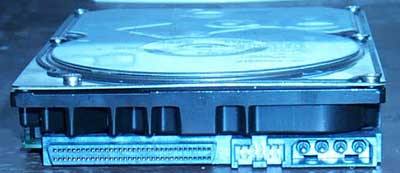Bij Planet Hardware is een informatief artikel verschenen over de Small Computer Systems Interface, oftewel SCSI. Er wordt besproken wat SCSI precies is, waarom het is ontworpen en de evolutie van de SCSI interface komt ook uitgebreid aan bod. Daarnaast wordt er ingegaan of SCSI ook interessant is voor de normale gebruiker, een vraag die in de meeste gevallen met nee moet worden beantwoord:
A big question we're sure that is on everyone's mind is whether SCSI is the right choice for you, if paying the extra dough for SCSI makes sense. Well, the short answer is that the majority of desktop PC users don't need the added benefits that SCSI can offer. With the introduction of ATA/66, and the recent release of ATA/100, there is plenty of performance to be gleaned from the IDE interface. The drives are extremely cheap at this point, and the interface for ATA/66 & ATA/100 comes on most of the popular motherboards.
Then there is the overall cost of building a SCSI system. You'll often hear folks saying that when they upgrade their rigs, they're going 'all SCSI', meaning they plan on purchasing not only SCSI hard drives, but also other SCSI devices such as CD-ROMs.
But, no matter what your intentions are in the SCSI world, you'll always have to pay the cost for a controller card. This is being provided on-board by some of the higher-end motherboards, which increases the cost of the overall board - but costs far less than purchasing a mainboard and controller card separately.
[...] On top of all this, you have the fact that SCSI drives cost more than their IDE counterparts. How much more? Well, let's examine one of the more popular density sizes for SCSI - a 18.2GB 7200rpm drive. In the IDE world a Quantum Fireball IDE drive of that size goes for roughly $100 - while a comparative Seagate Barracuda drive sells for around $250.
[...] The main usage for SCSI-based devices is for what the industry has coined 'Mission-critical' tasks. These tasks require 100% reliable equipment that is mounted in sophisticated servers that can handle hardware errors with more grace than your average desktop machine.
 |
